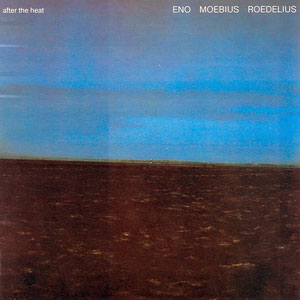
After the Heat is a 1978 album by Brian Eno, Dieter Moebius and Hans-Joachim Roedelius, credited to "Eno Moebius Roedelius". The album represents the second collaboration by the trio, the first being 1977's Cluster & Eno. As with the previous album, After the Heat was created in collaboration with the influential "krautrock" producer Conny Plank.

Begegnungen is a Sky Records 1984 collection of music by Brian Eno, Dieter Moebius, Hans-Joachim Roedelius and Conny Plank, compiled from these seven solo and collaborative albums released by Sky between 1976 and 1983:

Begegnungen II is a Sky Records 1985 compilation album with recordings by Brian Eno, Dieter Moebius, Hans-Joachim Roedelius, Conny Plank, Cluster, from solo albums, and from various collaborations between the artists. All of the tracks had been previously released elsewhere. The albums these tracks were drawn from are: Material by Moebius & Plank, Zero Set by Moebius, Plank, Neumeier, Durch Die Wuste and Lustwandel,both Roedelius solo albums, After The Heat by Eno, Moebius, Roedelius, Tonspuren, the first solo album by Moebius, Sowiesoso by Cluster, and the eponymous Cluster & Eno. These albums were released by Sky between 1976 and 1983.
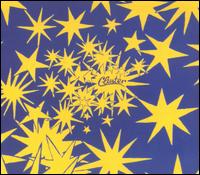
Cluster II is the second full-length album by German electronic music act Cluster, released in 1972 by record label Brain.
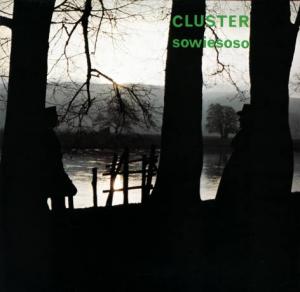
Sowiesoso is the fourth full-length album by German electronic music outfit Cluster.
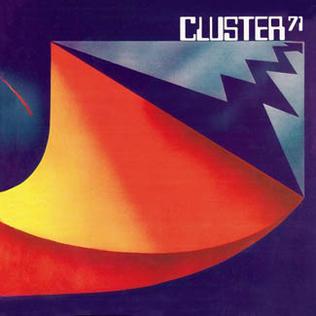
Cluster is the eponymous debut studio album by German electronic music outfit Cluster. It was recorded in 1971 and released the same year by record label Philips. It is also the only album on which Conrad Plank is credited as a member.

Apropos Cluster is a full-length studio album by Dieter Moebius and Hans-Joachim Roedelius also known as German electronic music outfit Cluster. It was also their first album after an eight-year-long hiatus.

Durch die Wüste is the first full-length solo album by German keyboardist Hans-Joachim Roedelius, best known for his work with Cluster, Harmonia, and Aquarello. The title is German for "Through the Desert."
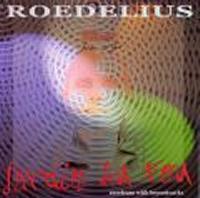
Jardin Au Fou is the second solo album by German keyboardist Hans-Joachim Roedelius, best known for his work with Cluster. The title is French for "Madman's Garden".
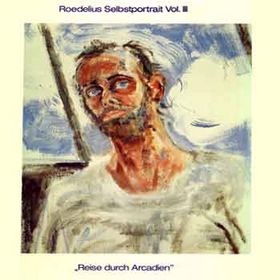
Selbstportrait Vol. III "Reise durch Arcadien" is the fifth solo album by German keyboardist Hans-Joachim Roedelius, best known for his work with Cluster, Harmonia, and Aquarello. It is the third of seven albums in Roedelius' Selbsportrait series of recordings. Selbstportrait Vol. III "Reise durch Arcadien" was recorded in Forst, Germany in 1978 and in Blumau, Austria between 1978 and February, 1980. The album was released by Sky Records in 1980.

Lustwandel is the sixth solo album by German keyboardist Hans-Joachim Roedelius, best known for his work with Cluster, Harmonia, and Aquarello. All the pieces on the album were composed by Roedelius with the sole exception of "Wilkommen", which was composed by Roedelius and Will Roper. It was released by Sky Records in 1981 and has been reissued on CD by Sky Records in Germany in 1992 and by the Gyroscope label in the United States in 1996.

Offene Türen is the eighth solo album by German keyboardist Hans-Joachim Roedelius, best known for his work with Cluster, Harmonia, and Aquarello. The music of Offene Türen is more avant-garde than other Roedelius solo albums of the 1970s and 1980s. It can best be compared to Cluster's Curiosum which was released by Sky Records that same year.

Wenn Der Südwind Weht is the seventh solo album by German keyboardist Hans-Joachim Roedelius, best known for his work with Cluster, Harmonia, and Aquarello. All the pieces on the album were composed by Roedelius. It was released by Sky Records in 1981 and has been reissued on CD by Sky Records in Germany by the Gyroscope label in the United States in 1996. The Bureau-B label reissued Wenn Der Südwind Weht in the European Union on both CD and 180 gram vinyl LP in 2010.

Flieg' Vogel fliege is the ninth solo album by keyboardist Hans-Joachim Roedelius, best known for his work with Cluster, Harmonia, and Aquarello. According to Roedelius biographer Stephen Iliffe this album is also titled Selbstportrait IV, but that name does not appear on the album sleeve or label. Flieg' Vogel fliege was recorded at Roedelius' home studio and completed at Erpelstudio, Vienna, Austria. Flieg' Vogel fliege was released by Sky Records on vinyl in 1982. Flieg' Vogel fliege was the final album Roedelius recorded for Sky Records.
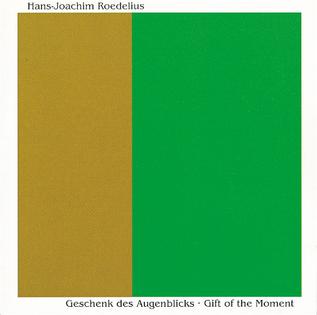
Geschenk des Augenblicks – Gift of the Moment is the eleventh solo album by German keyboardist Hans-Joachim Roedelius, best known for his work with Cluster, Harmonia, and Aquarello.

Auf leisen Sohlen is a compilation by Sky Records of works by German keyboardist Hans-Joachim Roedelius, best known for his work with Cluster, Harmonia, and Aquarello. It is subtitled Das Beste von H. J. Roedelius and includes tracks from seven of the eight albums he recorded for Sky Records during that period. All music included in this collection was composed by Hans-Joachim Roedelius.
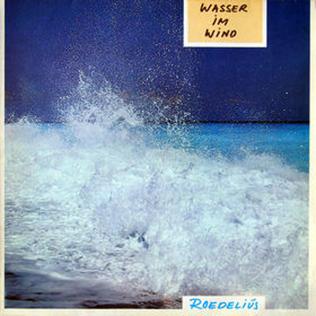
Wasser im Wind is the tenth solo album by keyboardist Hans-Joachim Roedelius, best known for his work with Cluster, Harmonia, and Aquarello.






















